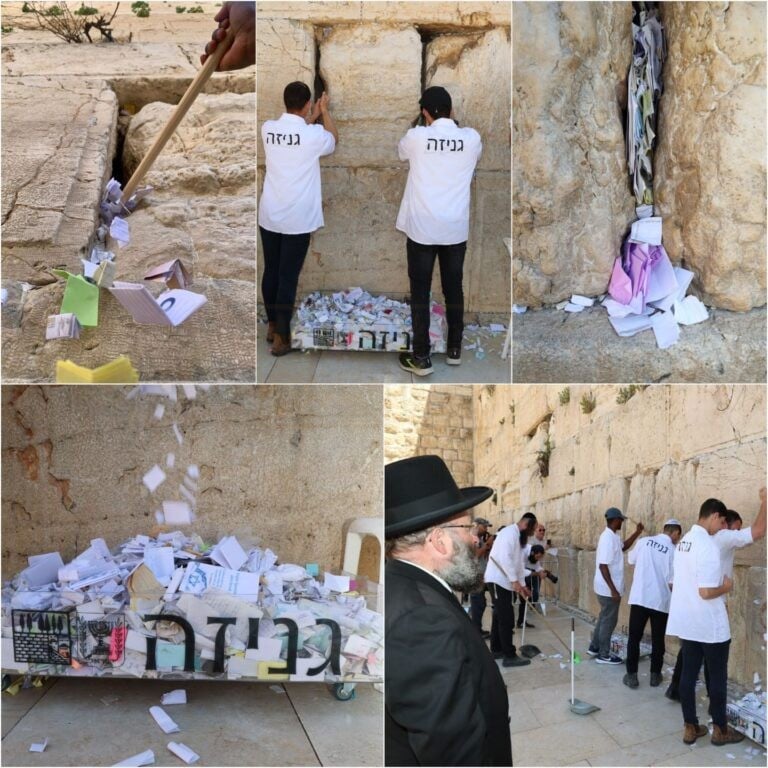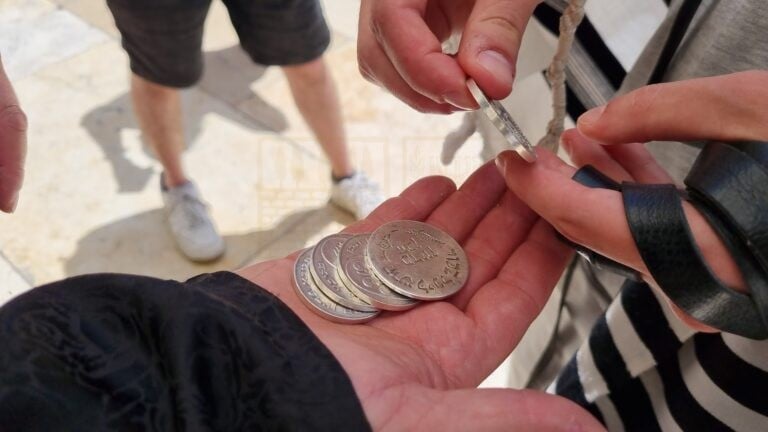Tazri’a Metzora- 5783
Rabbi Shmuel Rabinowitz, Rabbi of the Western Wall and Holy Sites
The portions of Tazri’a-Metzora, which we will read this week, deal with a variety of impurities, the halachic implications stemming from a state of impurity – such as distancing oneself from the Temple – and the ways to purify oneself from these states. At the center of these is the “metzorah” – a person who suffered from a skin disease that is unlike other diseases that are treated in conventional medical ways. “Tzara’at” – which is not Hansen’s Disease – is viewed by the Torah as punishment for misconduct. The result of this is that the treatment is not done by a doctor but by a kohen (priest), and the methods of treatment do not include conventional remedies as in any other disease but include special sacrifices that the “metzorah” brings to the Temple.
The Sages interpreted “tzara’at” as punishment for the sin of “lashon hara” (slander). A person who takes advantage of his social connections to say negative things about others is punished with this disease. The removal of the “metzora” from human society until the disease disappears is interpreted as part of the punishment intended to restore the correct relationship between the individual and society, and to understand the negativity of slander.
Each person faces two inherent contradictory tendencies: individualism versus collective affiliation, singularity versus sociality. On the one hand, man is a social being, he wants to be part of a community, and loneliness is a harsh punishment for him. On the other hand, a person feels a deep need to preserve his uniqueness, his personality, and the feelings and insights that exist only in him. No one has an exact replica of himself, nor is there anyone who can know and understand man accurately — except himself.
Sometimes, the collective blurs the individual. A person is surrounded by society from the day he is born. This may lead him to lose his personal identity, not listen to himself, not recognize his hidden personal desires, and in fact, miss the deepest and richest experience of his life. Sometimes the opposite occurs when a person feels that society threatens his personal identity, so he seeks to quit society and isolate himself to discover a rich personal world even at the steep price of loneliness.
Is there a way to balance the uniqueness of each person with life in society? There is, and it is with what is he called ‘ayin tova’ – a positive outlook. A person who looks at others and society with appreciation, recognizes the value of human beings and seeks to learn from them and improve – does not dismiss the conventions of society, but acquires from it the advantages it provides. When one does so while maintaining one’s own voice, one gains the benefits of individuality as well as the advantages of collective affiliation.
A person who speaks slanderously about others adopts a negative view of them, and therefore of society; perhaps out of fear that a positive view of society will suppress his own independent and unique personality. This perspective and the resulting behavior poison societal life. This person not only loses the ability to enjoy a proper societal life, but also harms his environment.
How is “tzara’at” related to this? In some places in the Torah, we find “tzara’at” to be an expression of death, of decay. A person who rejects societal life and strives for extreme individualism loses an important dimension of life. In describing the creation of the world in the book of Genesis, we find G-d’s judgment of creation. Again and again the sentence is repeated, “And G-d saw that it was good.” All of creation is good, except for one thing: “It is not good for man to be alone.” Loneliness is not the way for the individual to develop. On the contrary, it is precisely through social interaction that the person is called upon to develop his independent personality.
A person who speaks slanderously creates social decay. There is no choice but to temporarily banish this person from society in order to enable him to appreciate life in society. The loneliness that the “metzora” is commanded to experience is the cure for his illness that harms society as a whole.









